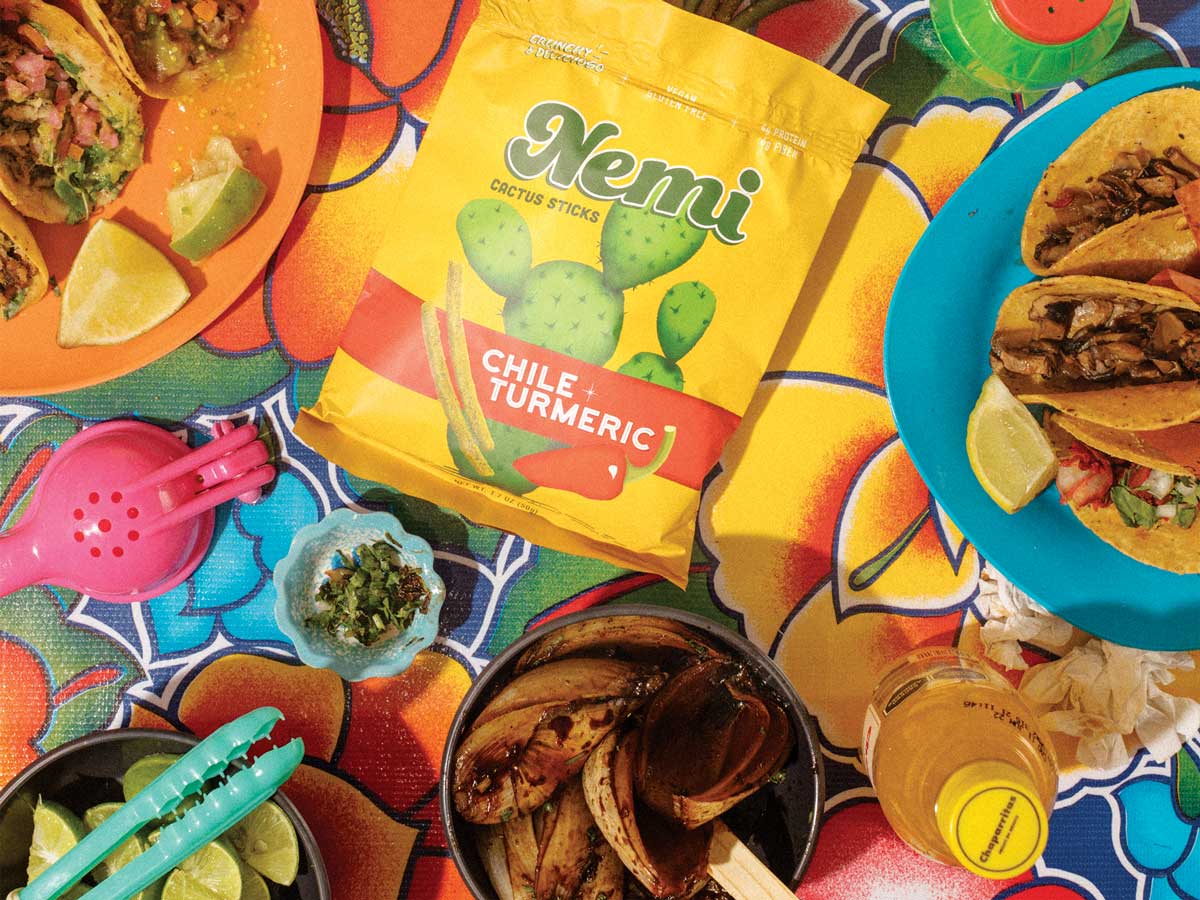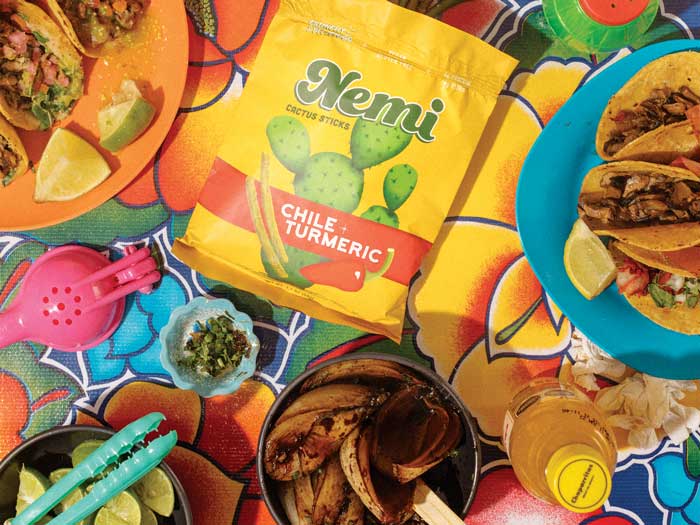
The tasty case for making drought-friendly snacks
 Snack company Nemi makes its products from nopal, a kind of cactus that’s a staple in Mexican cuisine (Image courtesy of Nemi)
Snack company Nemi makes its products from nopal, a kind of cactus that’s a staple in Mexican cuisine (Image courtesy of Nemi)
In the last few years, droughts across Europe and in the U.S. have caused crop yields to drop significantly, while population growth puts serious pressure on the global freshwater supplies that help power our agriculture industries. These conditions have forced everyone in the food business, from grower to retailer, to think about how best to use and maintain what limited resources are available—and that includes a new wave of snack companies that are turning to drought-resistant crops for ingredient inspiration.
“Food companies are recognizing that these challenging weather conditions can pose some supply side challenges in their ability to source agricultural ingredients for their food products, and that that will create a knock-on effect for consumers,” says John Cranfield, a professor of agricultural economics in the Department of Food, Agricultural and Resource Economics at the University of Guelph.
Crops like wheat, sorghum, barley, mustard seeds, sunflower seeds and soybeans generally thrive even when water is scarce, which is why they are increasingly being used as ingredients in everyday snacks. Fresh Bellies, which makes healthy Cheetos-like snacks, uses sorghum in their products. According to their founder Saskia Sorrosa, they carry some of the first vegan, non-GMO offerings to feature the eco-friendly “super grain.”
Meanwhile, snack company Nemi makes their products from nopal, a kind of cactus that’s a staple in Mexican cuisine. The company’s founder, Regina Trillo, told The Spoon that “one of the things I noticed when I moved [to the U.S.] was going into the ethnic aisle at grocery stores and not feeling represented.” Trillo adds, “a lot of the brands that were selling ‘Mexican’ products were inauthentic.”
With Nemi, she developed a product that would deliver that authentic taste, and had the added benefit of being good for the planet.
The company sources all its nopal, also known as prickly pear cactus, from independent growers in Aguascalientes, Mexico. And while the plant’s ‘paddles’ can be sautéed, fried or even roasted, Nemi sun-dries their cacti and turns them into a powder. Then, they blend the cactus powder with other ingredients like chia, amaranth, turmeric and pea protein to make thin, crispy sticks that come in flavours including chili and turmeric, smoky chipotle and churro.
According to Cranfield, farmers who are looking to adjust their production systems in the wake of all the recent droughts are not just worried about their immediate crop yields, but also about how viable their farms will be years down the line.
“It's not just about the profit that they're earning today,” he says. “It's about thinking forward four or five years and even into the next generation, so that if you want to pass that farm on to your kids, the land they're going to be able to use is as fertile and productive as it once was.”
This is why farmers generally take the lead when it comes to sounding the alarm on sustainability. But as more and more consumers make environmentally conscious buying decisions, their behaviour is in turn influencing what food and snack companies offer.
“Retailers aren't going to do something if there isn't someone there to buy it,” Cranfield says. “So, this isn't retailers with an agenda trying to shape what consumers buy. This is a natural market mechanism response to hearing that there are consumers looking for products [that have] some kind of assurance or guarantee or statement or claim around [being] produced in a sustainable way.”
According to Simon Somogyi, the Arrell Chair in the Business of Food at the University of Guelph, thinking about consumer habits around sustainability might also mean better business for some of these companies. “There is a set of consumersꟷrelatively small compared to the whole marketplace—that are willing to pay more for [something] sustainable,” he says. “Whether it be environmentally or socially sustainable products, [they’re] willing to pay what is a higher price for them.”
As we cycle through even more extreme weather events and the depletion of natural resources, with little input from the industries and corporations who have contributed most to the climate crisis, it’s easy to see why some might look at drought-resistant snacks as a trendy stopgap, rather than a robust, sustainable long-term solution.
“I had looked at some of those products and it's a little bit of a marketing ploy,” says Somogyi. “There are breeds of grains and oil seeds that have been developed to be more drought resistant and that’s been happening for quite a long period of time. They're pointing out something that isn't entirely new or innovative, they're just working it into their marketing.”
Marketing ploy or legitimate solution, though, Cranfield says there’s no doubt that sustainability in the food industry is here to stay, and we’ll likely see similar moves from even more brands as the climate crisis worsens.
MORE ON SUSTAINABILITY
Check out CPA Canada's climate change resources for CPAs as well as its publications and other resources on sustainability.